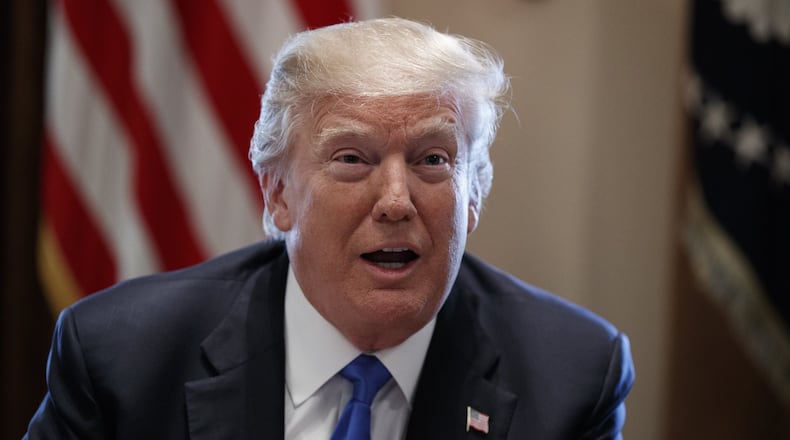As thousands marched in the streets of London recently to protest funding cuts to the British National Health Service, President Donald Trump took to Twitter to criticize the idea of universal health care.
We looked at the origins of the march and recent polling statistics about British public opinion on the National Health Service, commonly called the NHS. We also looked at the current funding situation, since Trump’s claim suggests it’s losing money. We found Trump’s tweet gives a misleading impression about how the British public feels about its health care system.
University of North Carolina health policy professor and deputy director of the Cecil G. Sheps Center for Health Services Research, Thomas C. Ricketts, told PolitiFact that the NHS probably has higher public support than any other government program in the UK.
Public support for maintaining the NHS in its current form remains high, according to a poll by Ipsos; 77 percent of people support this, while 9 in 10 think NHS's founding principles should still apply to services today. Two-thirds of adults are willing to pay more of their own taxes to pay for the NHS.
In a poll by YouGov last year, 84 percent of people were in favor of the service continuing to be run by the public sector.
The NHS march, officially named, "NHS in crisis: Fix it now" was organized by the People's Assembly, an independent, national campaign against austerity and Health Campaigns Together, a coalition defending the NHS.
This year marks 70 years of NHS, but it has gone through what has been described as the worst winter in its recent history. The lack of funding is often blamed on austerity measures by the Conservative Party, and there have been concerns over privatizing parts of the system.
Trump’s comments regarding the demonstration received immediate response by British officials, such as Labour leader Jeremy Corbyn, who said people were marching because they love the NHS and hate what is being happening to it.
Health minister Jeremy Hunt, who was largely blamed for the severe lack of winter funding, hit back at Trump's remarks, writing on Twitter that not one of the marchers "wants to live in a system where 28m people have no cover."
This is not to say people don’t have concerns about the NHS. A poll released last summer by the British Medical Association found more people are unhappy than satisfied with the NHS for the first time in the public poll. It showed that 70 percent of people think the health service is going in the wrong direction. Respondents’ leading concerns included lack of funding, the possibility that the NHS services may cease to be free, and increased waiting times.
Trump also claimed Democrats are pushing a similar health care plan to the NHS in the United States. Democrats have devised plans ranging from a total-government “Medicare for all,” also known as a single-payer health system, to a more limited “public option” that pits individual government-run plans up against private insurance for people who weren’t able to find affordable coverage in Obamacare. The latter allows access to government insurance alongside private health care plans.
The current version of the Affordable Care Act, known as Obamacare, has little resemblance to the NHS, where the government owns most of the hospitals and clinics and doctors and nurses are government employees.
Our ruling
The London march about NHS was not in opposition to the service, but a call to increase funding and stop austerity cuts to health and social care. The march resulted because people want universal health care to work better, not because they want it taken over by the private sector.
We rate this Mostly False.
“The Democrats are pushing for Universal HealthCare while thousands of people are marching in the UK because their U system is going broke and not working.”
— President Donald Trump on Monday, Feb. 5, 2018 in a tweet
About the Author
The Latest
Featured


